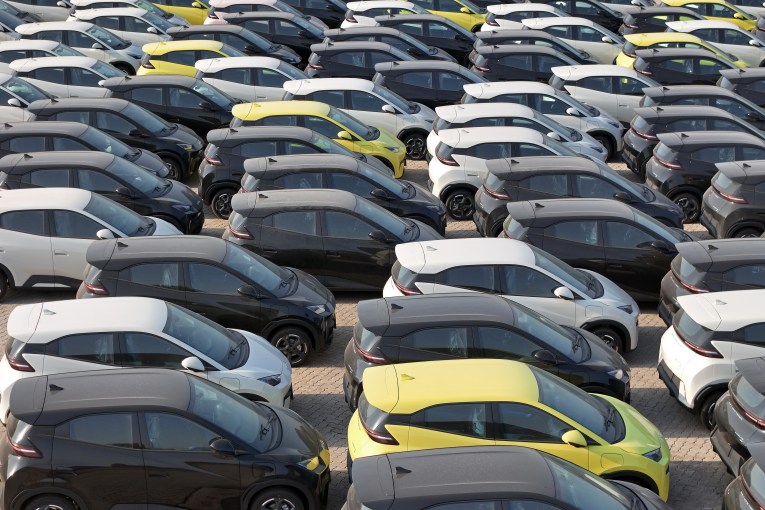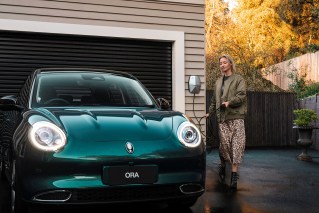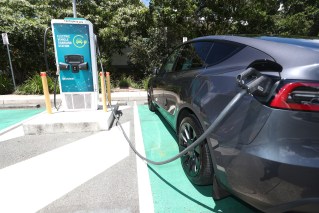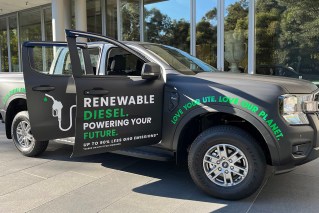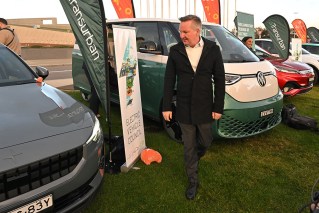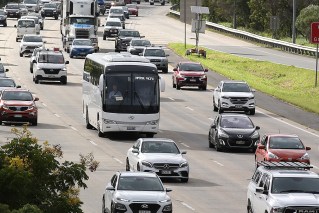Car-sharing backlash: Car Next Door users harassed by NIMBY neighbours

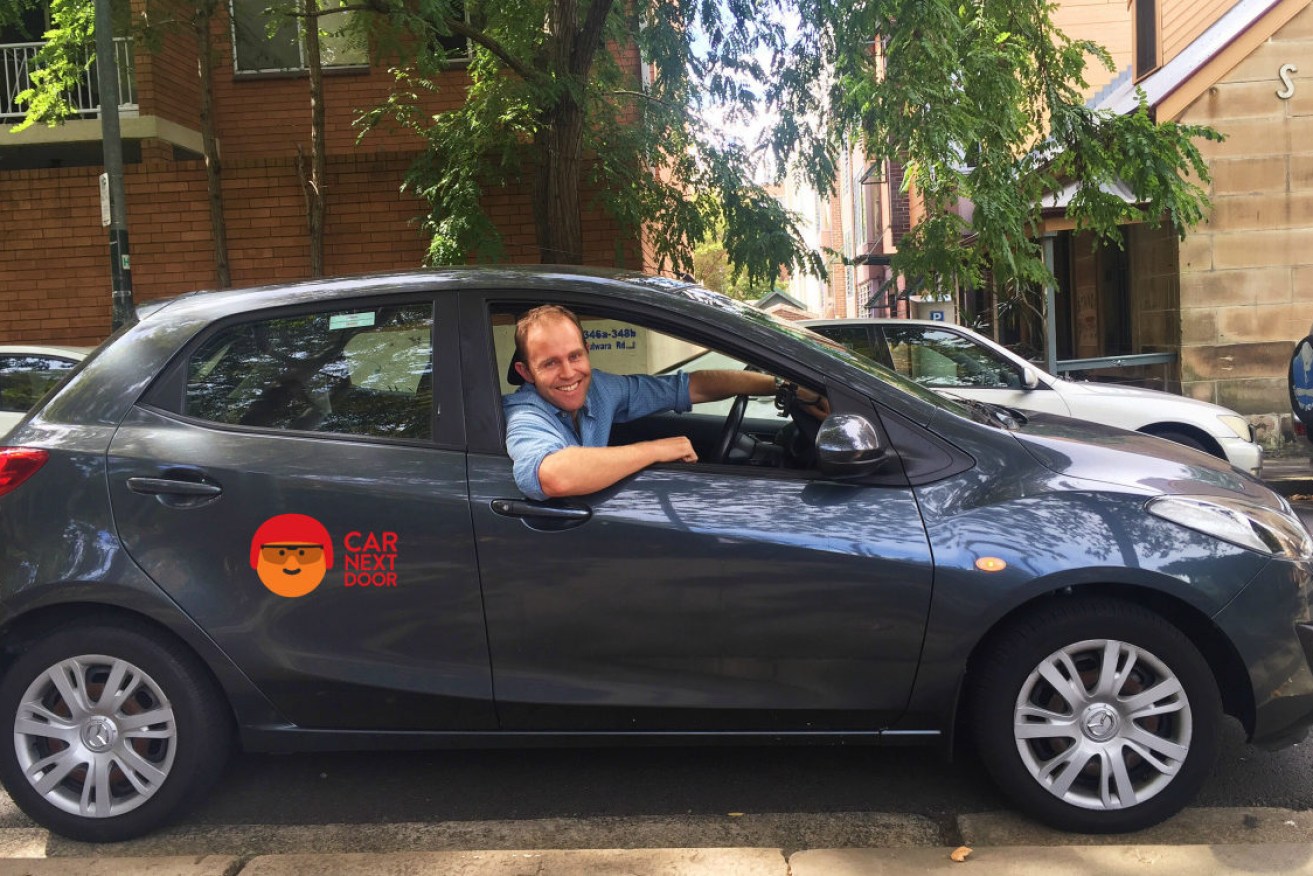
Car Next Door chief executive Will Davies founded the company to help combat congestion and climate change. Photo: Car Next Door
Users of Australia’s biggest peer-to-peer car sharing network are copping abuse from neighbours who resent their presence on the roads.
Entrepreneur Will Davies co-founded Car Next Door in 2012 out of concern about climate change and a desire to reduce car-related carbon emissions.
The service now boasts 150,000 registered users and 3000 vehicles across Sydney, Melbourne and Brisbane.
Mr Davies told The New Daily the branded stickers that car sharers stick on their vehicle’s doors have made them an unfair scapegoat for residents with a not-in-my-backyard (NIMBY) mentality.
“If you’ve got a car that you hardly ever use and sit it out on the street for months on the end with no usage but no stickers on it then no one gives you a hard time at all,” Mr Davies said.
“Even though you are taking up a valuable car spot and providing no value for anyone.”
Cars are one of our most underused assets that we own, with research showing the average car is driven just 5 per cent of the time.
Over time, one shared car takes 10 cars off the street, Mr Davies said.
But facts don’t “take away the emotional response” that some residents feel, he said.
Girdhar Deora works as a scientist at Monash University and lives in inner-suburban Melbourne.
He and his family share their two cars, and a van that was bought for a former business, on Car Next Door.
The service allows them to offset some of the costs of ownership while contributing to the community by providing a cheap transport option for car-free residents, Mr Deora said.
The vehicles are now being shared by as many as 30 other people, but that hasn’t stopped a handful of other car owners from trying to stymie the growth of car sharing in their area.
Despite the fact that his street is “not that busy … almost a dead area”, some neighbours complained about his car when it was parked outside his unit, and intimated borrowers who used it, Mr Deora said.
“I’m not sure they’re really getting what car-sharing means. They see a sticker on the car and think it looks like a big company,” he said.
“They’re not realising that I’m using this car for my purposes as well as sharing it online because it’s good. It helps reduce carbon pollution.
“Most people think that’s really great.”
Melbourne resident Brian, who did not want his surname published for fear of retaliation, said he had been harassed by neighbours for participating in the car-sharing program.
“I park my car on a street behind my house where there is no parking restrictions and plenty of space. That’s why I chose that street,” Brian said.
“It’s a quiet residential street with houses rather than apartments so there’s ample parking, which suits because I don’t want borrowers to be struggling to find parking.
“But recently I’ve had a few of the residents attack me and my partner and some of the borrowers telling us to move somewhere else and asking, ‘Why are you parking that there?’
“They’ve even accused us of dumping rubbish on the nature strip, which we or any borrower would never do.”
Brian believes a vocal minority of fellow residents are behind the attacks.
I think a few small-minded neighbours have got together to create a little hate group,’’ he said.
“The biggest offender doesn’t even live on that street.”
Kate Trumbull manages Car Next Door’s community relations and occasionally fields calls from residents angered by what they view as someone encroaching on their territory.
“It’s something I’ve come across since we started,” Ms Trumbull said.
“It pops up from time to time, especially as we grow and are reaching suburbs that there hasn’t been car-sharing before – beyond the GoGet zone and the inner-city latte belt.”
Backlash rarely arises due to heavy competition for parking spots, but rather “a strong culture of people feeling the [parking space] outside of their house belongs to their property”, Ms Trumbull said.
“The people who feel most strongly are the ones where there really isn’t parking pressure but it’s about the specific spot outside the house that they feel ownership over.
“There’s a strong social convention that no one parks in ‘their spot’.”
She said it wasn’t even a logical argument – it was an emotional one.
“What we’re trying to do is be part of the solution. We’re not creating or adding to a problem. We’re creating a situation where everyone doesn’t have to own their own car,” she said.
That’s how you relieve parking pressure. People need options.’’
In areas where Car Next Door is long established it “just becomes part of the scenery and people see it as a service they can access,” Ms Trumbull said.
“You can get a car for the whole day for under $40 or $50. For people who need the mobility and don’t have a lot of cash, it’s filling a gap that didn’t exist.”
However, rather than taking a combative approach, Car Next Door is working “with communities where members are and make people feel it’s a benefit and not a harm to communities”.
“Our focus is to improve communities and not cause division and upset,” Ms Trumbull said.
This includes dispelling misperceptions about peer-to-peer car sharing as another money-grabbing, multibillion-dollar tech startup that takes more than it gives.
“People don’t like the idea that someone else is getting a benefit that they’re not getting – making a profit – but it’s not a profit-making enterprise. Most people are often just offsetting their costs,” she said.
“It’s not Airbnb or an Uber.”
